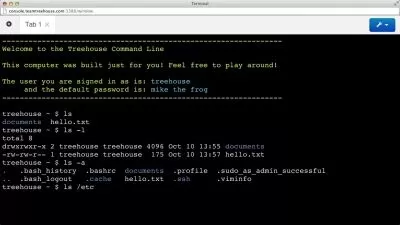Learning SOLID Programming Principles
Steven Lott
1:49:49
Description
There are many principles that support good object-oriented design and programming. Five of these principles are described by SOLID: single responsibility, open-closed, Liskov substitution, interface segregation, and dependency inversion. These principles guide the creation of stable, scalable, and robust code.
To incorporate SOLID into your own development workflow, Steven Lott has prepared a series of lessons that break down the principles one by one, with real-world examples. Learn how to use these principles in the design process, and to test the strength of your code along the way. Steven uses Python to demonstrate the concepts, but they're useful for any object-oriented programming language.
More details
User Reviews
Rating
Steven Lott
Instructor's Courses
Linkedin Learning
View courses Linkedin Learning- language english
- Training sessions 25
- duration 1:49:49
- Release Date 2023/01/14














